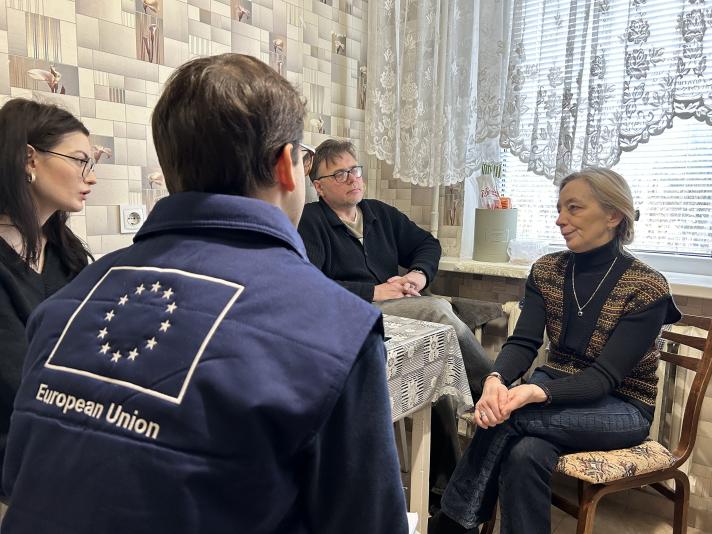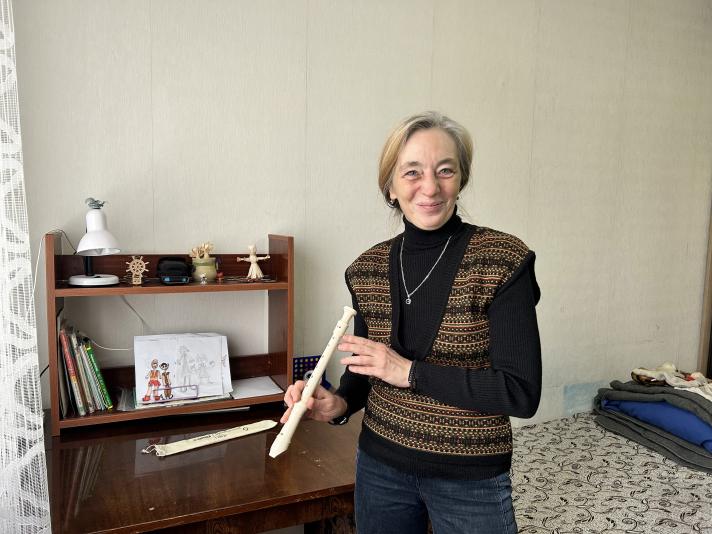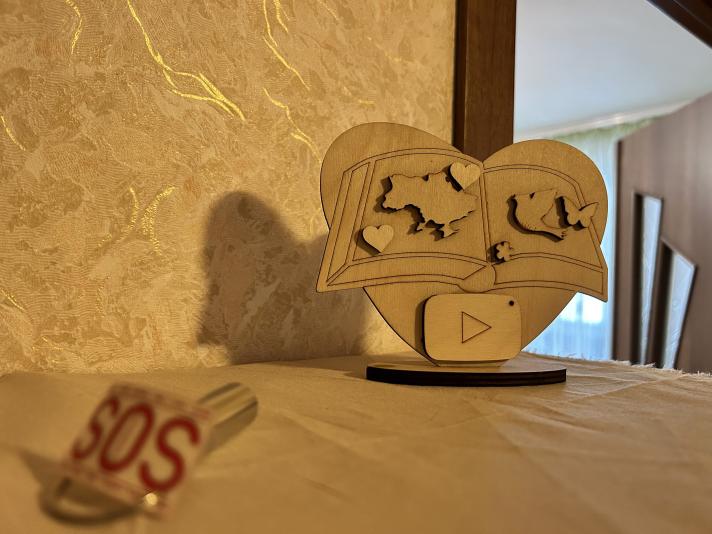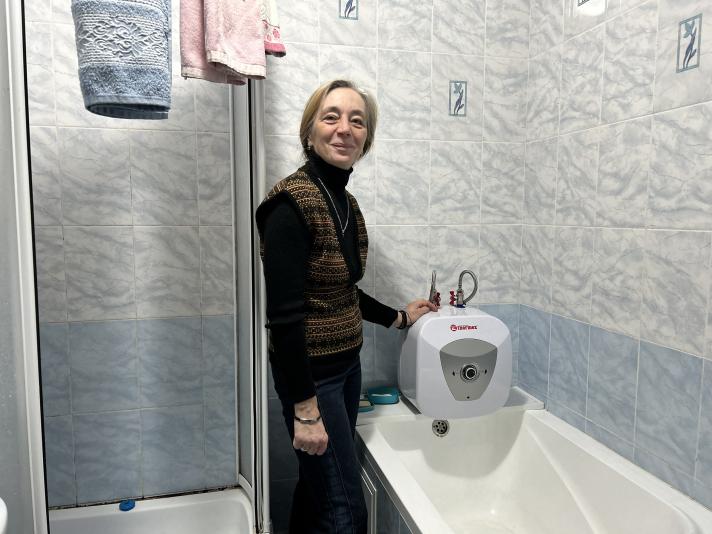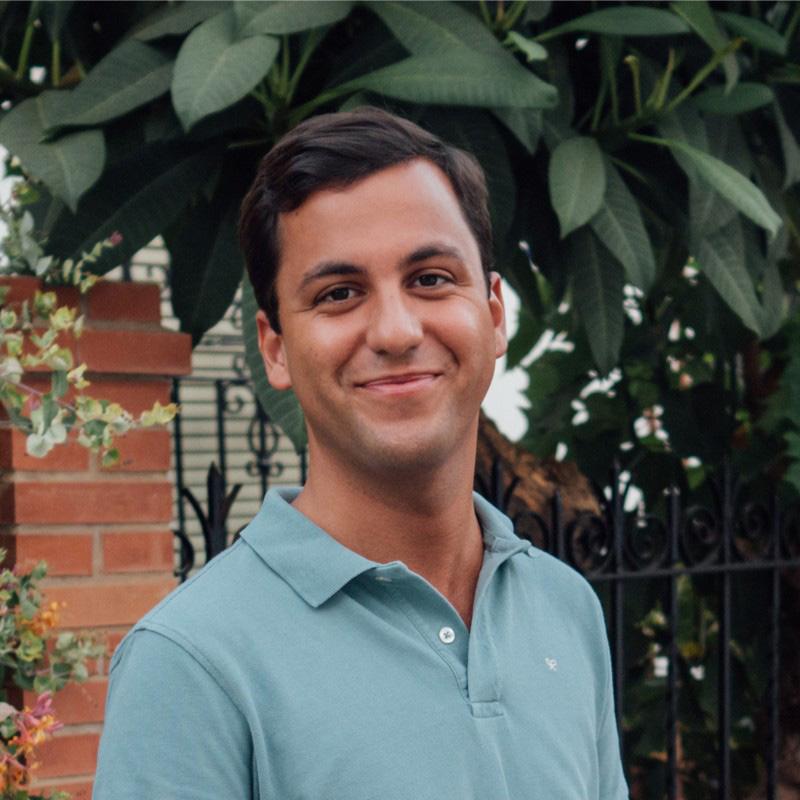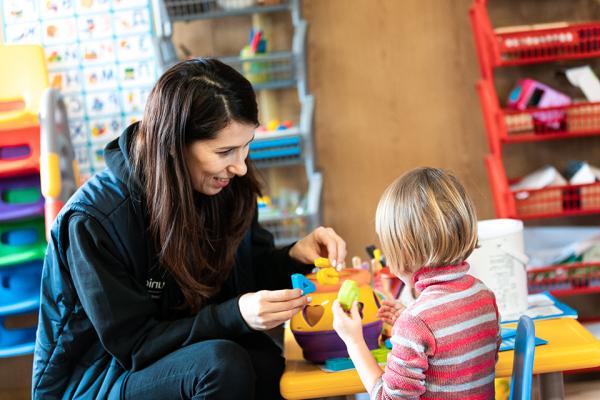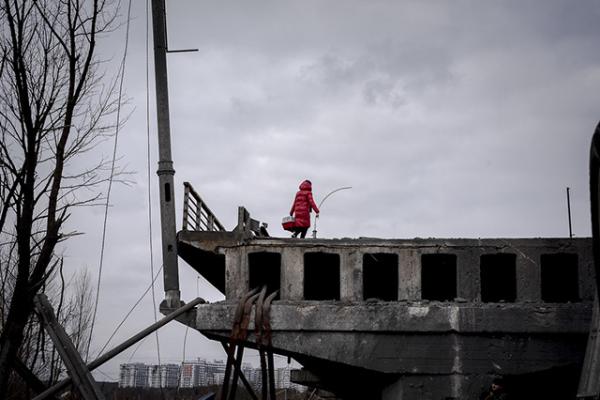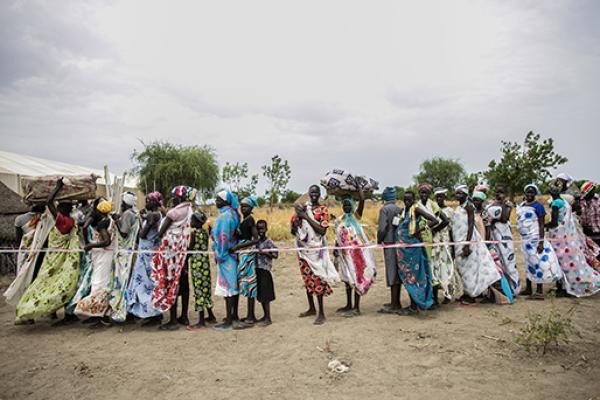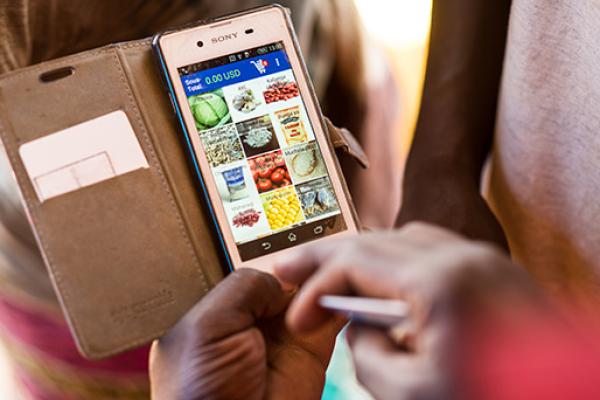When Russia’s war on Ukraine started, the lives of Yuliia, a former kindergarten teacher, Kostiantyn, an engineer, and their two children were upended. This family from Kyiv faced a difficult decision: to stay or to seek refuge elsewhere. They decided to flee to Moldova to protect their children and their futures. There, the EU funds humanitarian aid programmes that provide cash assistance for displaced Ukrainian families.
Before the war started, the family lived a normal life in Kyiv. Yuliia was a kindergarten teacher and a freelance writer, while Kostiantyn was an engineer specialised in the automation of products. Their older son was a music student.
Although the parents are both originally from Zaporizhzhia, in Eastern Ukraine, they had been living in Kyiv for a long time. It is here where they adopted their daughter. “We have a beautiful place there: a lake, a forest. We were always so happy to be there,” says Yuliia.
Common people living a regular life. Until the Russian invasion started.
The family managed to stay in Kyiv for 2 weeks after the war started. “My husband sat on the balcony all the time, waiting for something to fly towards us, to be prepared. It was anxious and uneasy.”
They couldn’t take it anymore. The anxiety and unease of waiting for danger to approach compelled them to board an evacuation train to Zaporizhzhia. Eventually, realising the escalating situation, they made the decision to take their children to Moldova.
According to Ukrainian law, adoptive parents have the right to leave the country. This law is still in effect.
“Actually, if we had to separate, I wouldn't have left. We would have stayed there. But finding out that, as adoptive parents, we could leave, we made that decision. Decided to take the children out,” says Yuliia.
A new life in Moldova
Their journey to Moldova wasn't without challenges, but it was the hope provided by the Academy of Music in Chisinau that played a pivotal role in their decision.
“A friend of ours wrote to the Academy of Music in Chisinau. The rector responded and invited us for a meeting. We wouldn't have dared ourselves. And now our son is a student at the Academy,” Yuliia says with a smile on her face.
What kept these parents going was fighting for their children’s futures.
“The first year was very difficult for our son because the conservatory's level was high for him. Only now, after a year of study, has he been able to find his rhythm. But the rector helped him. And we understand that without this help, he might not have continued his education on time,” she says.
Their adopted daughter only lived with their family in Ukraine for one and a half years. She’s 7 years old now and has been living with them in Moldova for almost 2 years.
“Every day she repeats, ‘Kyiv, Kyiv.’ She misses the squirrels. We had a forest next to our home. We fed squirrels and small birds. There's our lake. We miss it a lot,” Yuliia remembers.
A lifeline for Ukrainian refugees
In Moldova, the EU and the UN’s Refugee Agency (UNHCR) provide cash assistance for Ukrainian refugee families and Moldovan households hosting refugees. This programme has become a lifeline for the family.
“We learned about the programme online. Easily and quickly. There are many groups and websites used by refugees. Within the first month of our arrival, Yuliia found information about this programme on the internet. Everything was very fast,” says Konstiantyn.
The family can use this money to pay rent and other household expenses. “We installed a sink and bought carpets, a heater, and a boiler for heating water because there was no hot water here. All thanks to EU funding,” he explains.
Yuliia believes that, without the funding provided by the EU, they wouldn’t manage: “This money is not for living a luxurious life. It's for covering basic needs. For this, it is sufficient. It's clear that rent is a significant portion of this budget. Without this help, it would be very difficult.”
As the war in Ukraine is about to reach its second anniversary, the family still hopes to return one day. “You can pretend that you're on a business trip. But when you realise why you're here, it becomes very painful,” Yuliia says.
“It's great that people respond and help. But the reason for this help is not good. That's the point. I regret that this is happening. That there is no peace,” Kostiantyn concludes.

